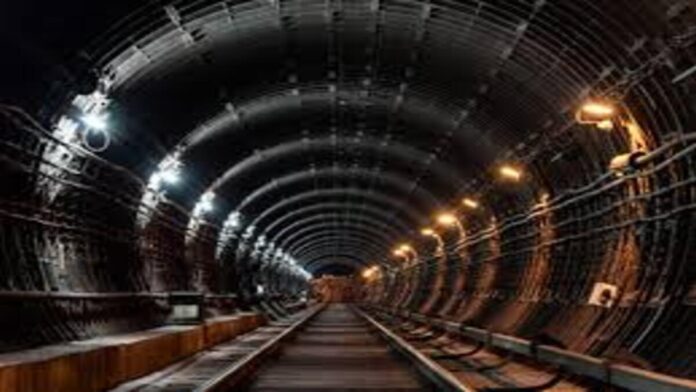India’s first underwater tunnel is being developed under the Hooghly River in West Bengal as part of the East-West Metro Corridor for Kolkata.
The 520-metre underwater tunnel will be crossed by the metro trains that will utilise the facility in approximately 45 seconds. The Kolkata metro tunnel is 33 metres below ground level and 13 metres below the riverbank.
The Salt Lake Sector V IT cluster in the east and Kolkata’s Howrah Maidan in the west will be connected by the East-West Metro Corridor.
After the 2.5-kilometer segment of the East-West Metro Corridor between Sealdah and Esplanade is finished, India’s first underwater tunnel will likely be put into service in December 2023.
The tunnel’s external diameter will be 6.1 metres, and its internal diameter will be 5.55 metres. 161 metres will separate the up and down tunnels from centre to centre.
High-quality M50 grade reinforced concrete segments with a thickness of 275 mm each make up the tunnel’s interior walls. The inner lining of the tunnel’s diameter is reinforced using six of these devices. Additionally, extra safety precautions were made to seal off the tunnel’s seams to guard against river water getting inside the building. We utilized extremely secure concrete mixtures.
To fill the space between the segments and the shield of the tunnel boring machine, the segments were sealed using an advanced grouting procedure.
To facilitate escape, two 760-meter emergency shafts have been built in the tunnel in accordance with National Fire Protection Association (NFPA) recommendations.
According to Kolkata Metro Rail Corporation General Manager Sailesh Kumar, only an underwater alignment was practical because of the residential regions’ high density of people and other technical considerations.
The travel between Howrah and Sealdah will take 40 minutes by metro instead of the current 90 minutes it takes by road. Additionally, it will reduce traffic congestion on both sides.
The East West Metro Corridor of the Kolkata Metro has seen numerous delays and expense increases throughout the years. The project’s official estimates have grown to Rs 8,475 crore, of which Rs 8,383 crore has already been spent, according to the report. It was approved in 2009 for a cost of Rs 4,875 crore, with a completion date set for August 15.




